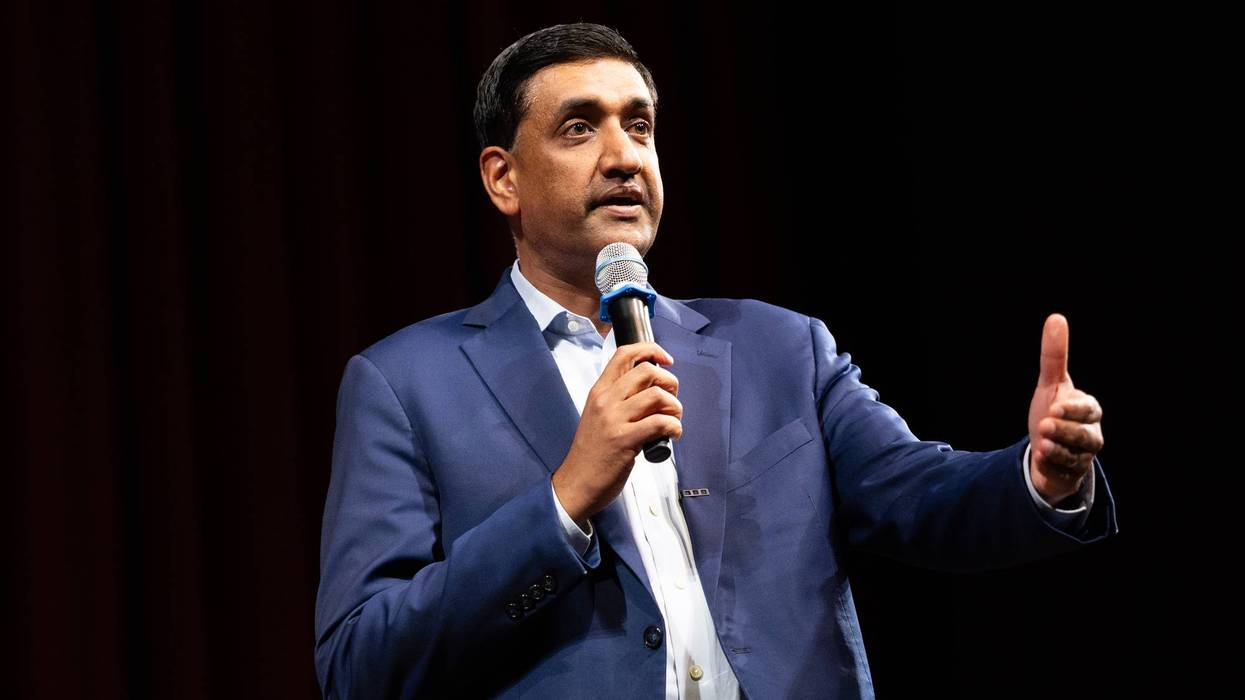May, 22 2017, 01:45pm EDT

Landmark Report Shows Bee-killing Seed Coatings Aren't Worth the Harm
Farmer and environmental friendly alternatives should replace toxic neonic seed coatings
WASHINGTON
A new report, Alternatives to Neonicotinoid Insecticide-Coated Corn Seed: Agroecological Methods are better for Farmers and the Environment, released today from Center for Food Safety, shows that environmentally harmful neonicotinoid (neonic) insecticide seed coatings are largely unnecessary and ineffective. The landmark report is the first of its kind to compile and analyze the peer-reviewed science on the efficacy of neonic corn seed coatings and to offer recommendations for viable alternatives for protecting both farmers and the environment.
Neonic-coated corn seed is the most extensive use of an insecticide on any crop in the United States, affecting close to 90 million acres of farmland, along with the broader environment. Neonic insecticides are known to cause significant harm to pollinators, aquatic organisms, birds, and possibly people. Yet harm from neonic-coated corn seed is unnecessary. As this report shows, agroecological and other alternative farming methods that are not highly dependent on pesticides are available and result in high productivity.
"For years we have seen dramatically increasing use of these toxic pesticide, yet the peer-reviewed research shows that they rarely protect farmer profit or crop productivity," said Dr. Doug Gurian-Sherman, the report's author. "What we've also seen is that industry-sponsored analysis of the chemicals' efficacy relies heavily on non-peer-reviewed research, and contains several biases that overestimate the value of neonic seed coatings for improving corn yield."
Dr. Gurian-Sherman's report compiles and analyzes the peer-reviewed research in the field, which shows there is no need for neonic seed coatings to protect the productivity of corn. Data examined also shows that the so-called secondary pests targeted by the seed coatings are rarely a problem for farmers; and, in fact "the published peer-reviewed evidence reveals that [these early-season insect pasts] infrequently reduce corn productivity in the absence of insecticide use."
Unfortunately, due to monopoly control by seed companies and the pesticide manufacturing industry, farmers can rarely find uncoated seed and are left without choice. Almost all corn seed is pre-coated by seed companies or their distributors. Farmers may also be lured by misinformation and industry scare-tactics that promote the seed coating as necessary to protect yield.
"One of the main reasons that neonic seed coatings are ubiquitous has nothing to do with yield or farmer profits, but rather monopoly control by seed and pesticide companies that make it extremely difficult for farmers to find and buy uncoated seed," said Gurian-Sherman. "Yet farmers can almost completely avoid even already low rates of corn pest infestation by applying available, simple changes in farming practices that are beneficial to both their livelihoods and the environment."
Significantly, Gurian-Sherman notes research which suggests that neonic seed coatings may sometimes actually decrease yields or reduce profit. This may occur because neonics may reduce the populations of organisms that normally help keep pest insects in check, and farmers may be unaware of this possibility when using the chemicals.
Because of the widespread contamination and harm associated with the overuse of seed coatings, particularly on corn, the report makes several recommendations for government action:
- Greatly restrict the use of neonic seed coatings, eventually leading to prohibition;
- Conduct surveys of farmers to understand why they may feel the need to use the seed coatings;
- Provide resources for farmers to learn about and adopt profitable, ecologically and socially friendly alternative pest control methods;
- Make affordable or subsidized insurance available for the rare cases where target pests might be a problem;
- Conduct research to fill in gaps in our knowledge of the pests, and ecological practices that can control them;
- Require seed companies to make uncoated seed available.
In addition, EPA should release its analysis of the efficacy, benefits, and costs of neonic corn seed coatings, including harm to honeybee colonies and any resulting reduced yields of pollinated crops; reduced production of honey and other bee products; harm to other pollinators and other beneficial and non-target organisms; financial harm to beekeepers and consumers; loss of ecosystem services; and market damage from contamination events.
Alternatives to Neonicotinoid Insecticide-Coated Corn Seed... makes clear that neonic seed coatings are a prime example of an expensive, chemically-dependent, pale substitute for free, ecologically and scientifically based advanced farming alternatives. They are a symptom of even more extensive farmer and environmental harm, and lack of sustainability caused by industrial farming.
Center for Food Safety's mission is to empower people, support farmers, and protect the earth from the harmful impacts of industrial agriculture. Through groundbreaking legal, scientific, and grassroots action, we protect and promote your right to safe food and the environment. CFS's successful legal cases collectively represent a landmark body of case law on food and agricultural issues.
(202) 547-9359LATEST NEWS
Trump Says Bombing of Iran to Continue 'Uninterrupted' After Reported Killing of Supreme Leader
"For Iranians already suffering under repression, sanctions, and economic hardship, this escalation will mean only more pain," said the president of the National Iranian American Council.
Feb 28, 2026
US President Donald Trump and Israeli officials claimed Iran's supreme leader, 86-year-old Ali Khamenei, was killed in an airstrike on Saturday, along with other senior Iranian figures.
The US and Israeli militaries targeted Khamenei and other Iranian leaders with their opening barrage of strikes, part of an operation that was reportedly planned for months—with the launch date decided weeks ago—even as Trump claimed to be open to a diplomatic off-ramp. NPR, citing an anonymous source, reported that an Israeli strike killed Khamenei.
Trump made clear that Khamenei's alleged killing, which the Iranian government has not confirmed, would not stop the deadly military onslaught, which the US president launched in coordination with Israel without authorization from Congress and in clear violation of international law. The US president said explicitly in remarks early Saturday that his goal was to topple the Iranian government—something that analysts stressed is not synonymous with assassinating the supreme leader.
In a Truth Social post, Trump wrote that "heavy and pinpoint bombing... will continue, uninterrupted throughout the week or, as long as necessary to achieve our objective of PEACE THROUGHOUT THE MIDDLE EAST AND, INDEED, THE WORLD!"
Iran has responded to the US and Israeli assault with drone and missile attacks on Israel and American military bases across the Middle East. The US Central Command said in a statement that there have not yet been any reports of American casualties and that "damage to US installations was minimal."
In Iran, more than 200 people have been killed by US-Israeli airstrikes and around 700 others injured, according to the Iranian Red Crescent, a toll that's sure to grow in the coming days as rescue workers search through rubble. More than 80 people—mostly young children—were killed in an Israeli strike on a school in southern Iran.
Jamal Abdi, president of the National Iranian American Council, said in a statement that "for Iranians already suffering under repression, sanctions, and economic hardship, this escalation will mean only more pain."
“Bombing Tehran will not bring security. It will endanger civilians, place US service members at risk, empower the most repressive and violent elements inside Iran, and destabilize the region for years to come," said Abdi. "Congress must act immediately to reassert its constitutional authority and halt further escalation. The pending War Powers resolutions must come to a vote without delay. Lawmakers must make clear that there is no authorization for war with Iran."
Keep ReadingShow Less
'More Horrific Death and Destruction Will Come,' Warns Tlaib as Israeli Strike Kills Dozens of Iranian Kids
"These acts of war threaten to ignite a catastrophic regional war that will make no one safer while unleashing unconscionable suffering," said US Rep. Rashida Tlaib.
Feb 28, 2026
More than 50 young children were reportedly killed Saturday by an Israeli airstrike on southern Iran as the US and Israel carried out joint attacks across the country. A local official told Iranian state media that "an Israeli missile attack" hit a girls' elementary school in Minab.
Saturday is a school day in Iran. A school staff member told Middle East Eye that "you could hear the sound of children crying and screaming" following the strike.
“We still don’t know how many are under the rubble," said the unnamed staffer. "Some are even saying more than 100. Some of these small children are severely injured. Their parents have come to the school, and this place has turned into a house of mourning.”
Iranian media now report 40 killed and 48 students injured following the strike on a girls’ elementary school in Minab, as rescue and recovery efforts continue. https://t.co/kCR6Gagvip pic.twitter.com/faBFkgFn3D
— Ali Hashem علي هاشم (@Alihashem) February 28, 2026
Iranian Foreign Minister Abbas Araghchi wrote on social media that the school "was bombed in broad daylight, when packed with young pupils."
"Dozens of innocent children have been murdered at this site alone," he added. "These crimes against the Iranian people will not go unanswered."
Al Jazeera noted that "separately, Iran’s Mehr news agency reported that at least two students were killed by another Israeli attack that hit a school east of the capital, Tehran."
“Every war is a war on children," said Inger Ashing, CEO of the global humanitarian group Save the Children. "All children have the right to access a safe education, and schools should always be a haven for children—not a battlefield."
In a statement, US Rep. Rashida Tlaib (D-Mich.) alluded to the Minab school bombing as she condemned President Donald Trump for "acting on the violent fantasies of the American political elite and the Israeli apartheid government, ignoring the vast majority of Americans who say loud and clear: No More Wars."
"The Trump administration and Israeli regime’s illegal war of aggression on Iran has already killed dozens of children, and more horrific death and destruction will come," Tlaib warned. "These acts of war threaten to ignite a catastrophic regional war that will make no one safer while unleashing unconscionable suffering."
“President Trump will pretend this is about democracy and the rights of the Iranian people," she continued. "Don’t be fooled, Trump does not care about the Iranian people. The Iranian people are not pawns for the interests of foreign powers. Our government has imposed brutal sanctions that have destroyed the Iranian economy and the lives and livelihoods of millions of people. You cannot ‘free’ people by killing them and destroying their country."
Tlaib issued her statement shortly after Trump declared in a Washington Post interview that he decided to wage war on Iran to secure "freedom for the people." As of this writing, the White House has not responded to the Minab school massacre. (Update: A spokesperson for the US Central Command said in a statement that "we are aware of reports concerning civilian harm resulting from ongoing military operations. We take these reports seriously and are looking into them. The protection of civilians is of utmost importance, and we will continue to take all precautions available to minimize the risk of unintended harm.")
"I want a safe nation, and that’s what we’re going to have," Trump said as the US-Israeli onslaught hurled the Middle East into chaos.
Tlaib said in her statement that the US Congress "must stop the bloodshed by immediately reconvening to exert its war powers and stop this deranged president."
"But let’s be clear: Warmongering politicians from both parties support this illegal war, and it will take a mass anti-war movement to stop it," she added.
Keep ReadingShow Less
Demanding Action From Congress, Khanna Says 'The American People Are Tired of Regime Change Wars'
"We don't want to be at war with a country of 90 million people in the Middle East," said Democratic US Rep. Ro Khanna.
Feb 28, 2026
US Rep. Ro Khanna on Saturday demanded swift action from Congress to stop the Trump administration's unauthorized military assault on Iran, saying in a video posted to social media that "the American people are tired of regime change wars that cost us billions of dollars and risk our lives."
"We don't want to be at war with a country of 90 million people in the Middle East," said Khanna (D-Calif.), calling on Congress to reconvene for a vote on Monday.
"Every member of Congress should go on record today on how they will vote on Thomas Massie and my War Powers resolution," Khanna added, referring to the Kentucky Republican who is co-leading the measure.
If passed, the resolution would require the president "to terminate the use of United States Armed Forces from hostilities against the Islamic Republic of Iran or any part of its government or military, unless explicitly authorized by a declaration of war or specific authorization for use of military force against Iran."
The White House reportedly only notified some members of the House and Senate Armed Services Committees after the US-Israeli military assault on Iran began. According to Reuters, an Israeli defense official said that "the operation had been planned for months in coordination with Washington, and that the launch date was decided weeks ago."
Watch Khanna's remarks:
Trump has launched an illegal regime change war in Iran with American lives at risk. Congress must convene on Monday to vote on @RepThomasMassie & my WPR to stop this. Every member of Congress should go on record this weekend on how they will vote. pic.twitter.com/tlRi3Vz849
— Ro Khanna (@RoKhanna) February 28, 2026
Days prior to the US-Israeli attack on Iran, the House Democratic leadership announced it would force a vote next week on the Khanna-Massie War Powers resolution following reports that top Democrats were slowwalking the measure behind closed doors.
Senate Democrats also said they planned to vote next week on a War Powers resolution led by Sens. Tim Kaine of Virginia.
In a statement on Saturday, Kaine called the US attacks on Iran "illegal" and said that "every single senator needs to go on the record about this dangerous, unnecessary, and idiotic action."
“Has President Trump learned nothing from decades of US meddling in Iran and forever wars in the Middle East? Is he too mentally incapacitated to realize that we had a diplomatic agreement with Iran that was keeping its nuclear program in check, until he ripped it up during his first term?" Kaine asked. "These strikes are a colossal mistake, and I pray they do not cost our sons and daughters in uniform and at embassies throughout the region their lives. The Senate should immediately return to session and vote on my War Powers resolution."
The chances of a War Powers resolution getting through the Republican-controlled Congress are virtually nonexistent, even though the American public overwhelmingly opposes US military action against Iran. Senate Majority Leader John Thune (R-SD) and House Speaker Mike Johnson (R-La.) both issued statements applauding Trump for the unauthorized Saturday attacks.
Cavan Kharrazian, senior policy adviser to the advocacy group Demand Progress, said that "Trump has no authority to launch another war on his own."
"The Constitution is clear. The need for a War Powers resolution is clear. Congress decides when this country goes to war, not the president," said Kharrazian. "Next week, every member of Congress will have to choose. Side with illegal, endless war, or side with the American people and reject yet another regime change war in the Middle East. Like with Iraq, the choice they make will echo loudly for years to come.”
Keep ReadingShow Less
Most Popular


